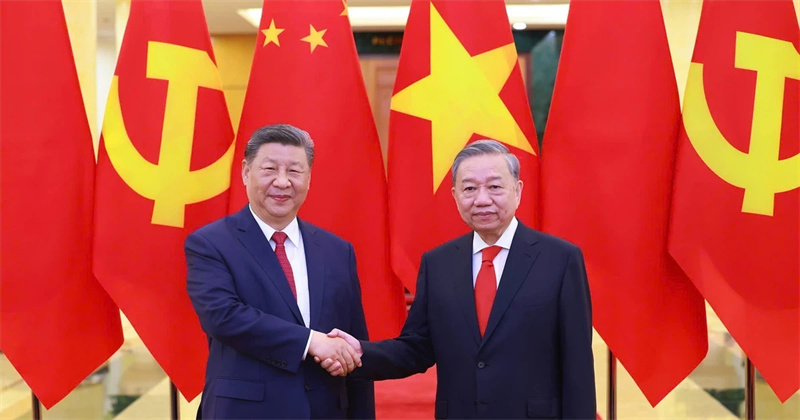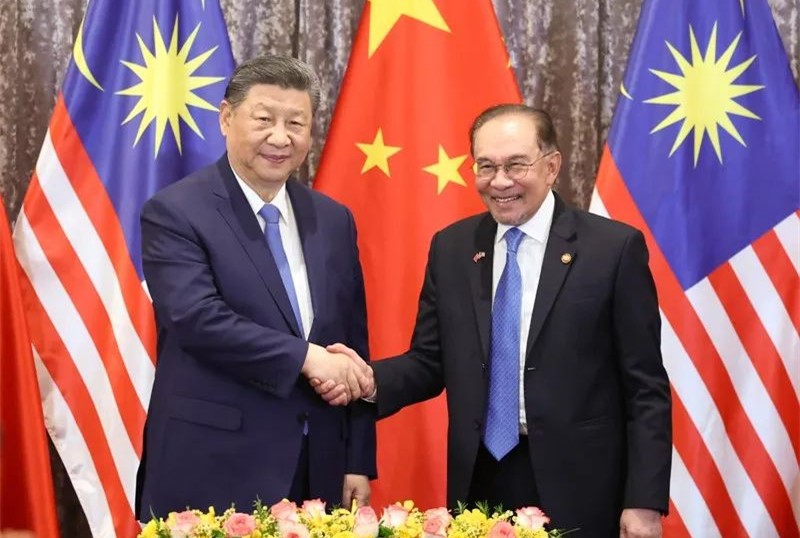China is ramping up its efforts to strengthen high-tech collaboration with Southeast Asia, placing semiconductors and artificial intelligence (AI) at the center of its diplomatic agenda during recent high-level meetings with Vietnam and Malaysia.
During President Xi Jinping's state visit to Vietnam on April 14–15, the two countries issued a joint statement emphasizing the construction of a “China–Vietnam community with a shared future.” A major highlight was the agreement to deepen cooperation in emerging industries, particularly AI, semiconductors, digital economy, green energy, and the circular economy. The two sides pledged to facilitate joint research and technology exchanges in these sectors and accelerate the development of cross-border infrastructure that supports industrial upgrading and supply chain integration.
As part of their commitment to boosting high-tech industries, Vietnam and China agreed to strengthen collaboration in the semiconductor sector, focusing on developing local manufacturing capabilities and joint R&D efforts to meet growing regional demand for advanced chips. Both nations highlighted the importance of semiconductors in supporting industries such as telecommunications, automotive, and consumer electronics, and discussed the establishment of new technology parks and research hubs to foster innovation.

The joint statement also detailed plans to build a stable and resilient regional industrial and supply chain. Both governments agreed to explore cooperation in areas such as green agriculture, clean energy, smart manufacturing, and the digital transformation of traditional industries—signaling broader ambitions to jointly move up the value chain in high-tech production. The leaders also discussed promoting partnerships in AI and big data, particularly in leveraging these technologies for smart cities and urban development.
Just days later, on April 17, Chinese Foreign Minister Wang Yi visited Malaysia, where he met with Prime Minister Anwar Ibrahim. In their joint statement, the two countries reiterated their commitment to strengthening economic and technological cooperation under the Belt and Road Initiative, with a particular emphasis on advanced technologies. The statement called for deeper collaboration in semiconductors, AI, and the broader digital economy, stressing the need to safeguard stable and secure supply chains amid global uncertainties. Malaysia, a vital hub in global semiconductor production, was highlighted as a key partner in advancing both nations' semiconductor capabilities. Discussions also centered on Malaysia's role in facilitating the integration of Chinese technologies within ASEAN markets, particularly in the fields of AI and green energy.

The Malaysia–China statement further encouraged closer engagement between the two countries' private sectors in emerging technologies, such as AI, big data, and green technology. Malaysia's growing digital economy, bolstered by its strategic position in Southeast Asia, was noted as an ideal platform for the expansion of Chinese tech firms. Both sides recognized the importance of aligning with international trends and expressed support for ongoing dialogue to explore future industrial partnerships. Furthermore, both countries showed interest in jointly developing smart manufacturing initiatives, aiming to leverage AI and automation to transform their industrial sectors.
These back-to-back announcements reflect China's growing emphasis on high-tech diplomacy in Southeast Asia, as it seeks to solidify its regional supply chain networks and gain broader access to key manufacturing and innovation ecosystems. Malaysia's proactive approach in advancing its digital economy and fostering international collaboration positions it as a key player in shaping the future of high-tech development in the region.
+86 191 9627 2716
+86 181 7379 0595
8:30 a.m. to 5:30 p.m., Monday to Friday
